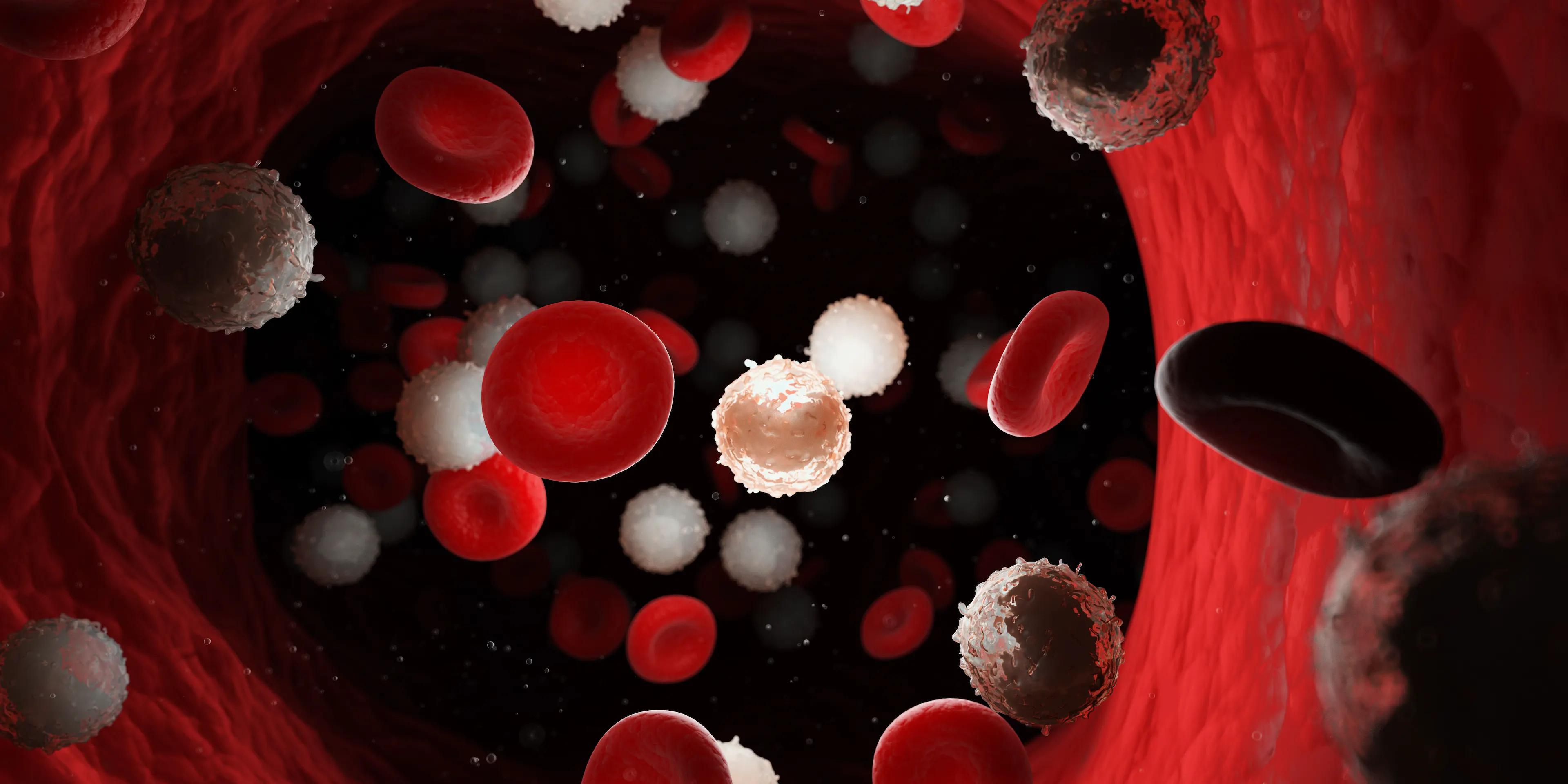Various Doses of Axatilimab Generate Positive Responses in cGVHD
Positive topline results from the AGAVE-201 trial have led the companies to submit a biologics license application to the FDA by the end of 2023.
Image Credit: © SciePro [stock.adove.com]

Treatment with axatilimab (SNDX-6352), an anti-CSF-1R antibody, in adult and pediatric patients with chronic graft-versus-host disease (cGVHD) following 2 or more prior lines of therapy achieved an overall response rate (ORR) of 74% at a dose of 0.3 mg/kg given every 2 weeks (95% CI, 63-83), meeting the primary end point of the pivotal AGAVE-201 trial (NCT04710576).1
For patients treated with axatilimab at doses 1.0 mg/kg every 2 weeks and 3.0 mg/kg every 4 weeks, ORRs within the first 6 months of treatment of were 67% and 50%, respectively (95% CI, 55-77; 95% CI, 39-61), respectively. Across all key patient subgroups, including those who had prior exposure to ruxolitinib (Jakafi), belumosudil (Rezurock), and/or ibrutinib (Imbruvica), the trial achieved the primary end point.
These data highlight durable responses to treatment, and at the 0.3 mg/kg dose (n = 79), 60% of patients who responded to axatilimab continued to respond at 1 year. The safety and efficacy profile of axatilimab continues to be reinforced by these findings, as well as its potential as a first-in-class CSF-1R monoclonal antibody in cGVHD.
Based on these results, Syndax Pharmaceuticals, Inc, and Incyte plan to submit a biologics license application to the FDA at the end of 2023.
"The results from the AGAVE-201 study are extremely compelling and underscore the potential benefits axatilimab may offer appropriate patients facing the serious complications associated with chronic GVHD," said Steven Stein, MD, chief medical officer of Incyte, in a press release. "At Incyte, we remain committed to advancing our research and understanding of this complex disease and will work closely with Syndax and regulatory authorities to bring this innovative medicine to chronic GVHD patients."
The open-label, randomized, multicenter, phase 2 AGAVE-201 study enrolled a total of 241 patients across 121 sites in 16 countries to evaluate the safety, efficacy, and tolerability of axatilimab in patients with recurrent or refractory active cGVHD after failure of 2 or more prior lines of systemic therapy due to progression of disease, intolerability, or toxicity.2
Among those enrolled in the trial, patients received a median of 4 prior systemic therapies with 74% having previously received ruxolitinib, 23% having previously received belumosudil, and 31% having previously received ibrutinib.1 Fifty-four percent of these patients had at least 4 organs involved at baseline including 45% with lung involvement.
Additional findings from the study showed that among patients treated at the 0.3 mg/kg dose, 55% experienced a clinically meaningful improvement in symptoms, as measured by at least a seven-point decrease in the modified Lee chronic GVHD Symptom Scale score.
For safety, the most common adverse events (AEs) were consistent with both the on-target effects of CSF-1R inhibition and what was previously observed for patients treated with axatilimab. In the overall population, AEs in greater than 20% of patients include an increase in aspartate aminotransferase, blood creatine phosphokinase, lipase, blood lactate dehydrogenase, alanine aminotransferase and fatigue (n = 239).
In the same population, serious AEs were seen in 101 (42.3%) patients, with 37 (15.5%) patients experiencing adverse events leading to discontinuation of study treatment. Of patients in the 0.3 mg/kg dose group, the only serious AE reported in greater than 20% of patients was fatigue. Serious AEs in the 0.3 mg/kg group were seen in 30 (38%) patients, with a total of 5 (6.3%) patients experiencing AEs that led to the discontinuation of study treatment.
"Today marks an important day not only for Syndax and Incyte, but, more importantly, for patients suffering from chronic GVHD," said Michael A. Metzger, chief executive officer of Syndax, in a press release. "Axatilimab is the first investigational chronic GVHD treatment to target inflammation and fibrosis through the inhibition of disease associated macrophages, and the AGAVE-201 data demonstrates the potentially pronounced impact this mechanism, alone or in combination with standard of care therapies already available for the management of this disease, may have on patients suffering from chronic GVHD. These results underscore our belief that axatilimab could provide a valuable and highly differentiated therapeutic option for this devastating disease. We look forward to working with our partners at Incyte as we move axatilimab towards regulatory filing."